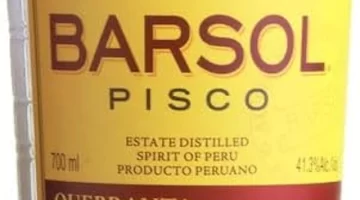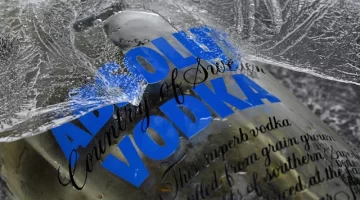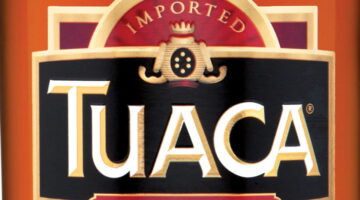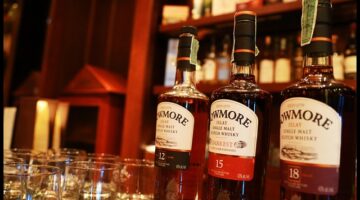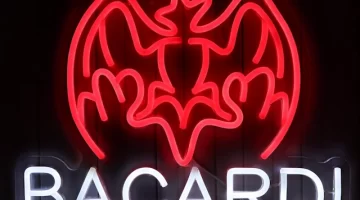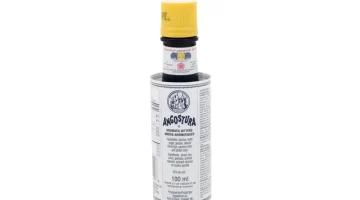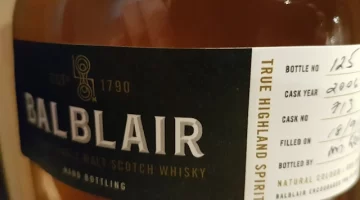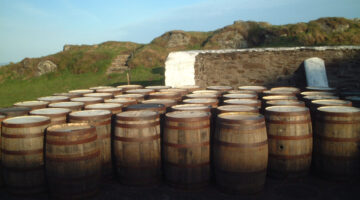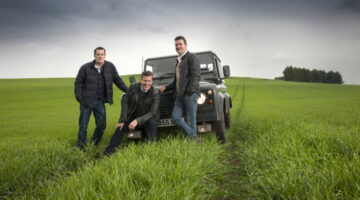Whiskey Women Book Review
Travel Distilled reviews the book Whiskey Women by Fred Minnick, a fascinating account of the huge role women have played in the whiskey business.
Fred Minnick is one of the world’s leading whiskey writers, and his book, Whiskey Women, is one of the most engrossing whiskey books I’ve ever read.
I must admit that I’m one for skipping bits in books if I find them a little boring. That’s not just books about spirits, which I do read a lot of, but any book. It’s a rare one where I can say that I didn’t skip a single word, but this is one of those rare books that had me riveted from start to finish.
I never knew that women paid such pivotal roles in distilling, right from the earliest days…
And Minnick’s book covers those earliest days all the way through to today’s leading women in the whiskey and distilling business…
It seems, though, that even Minnick himself was unaware of just how big a part women have played in the whole industry until he started researching his book:
“For a business steeped in tradition and history, whiskey has forgotten its better half. Women have always been a part of whiskey history; they’ve just never received credit. As I pursued the story of women’s role in the whiskey industry, I discovered that women contributed greatly to the evolution of alcohol. Nearly four thousand years before whiskey was first distilled, Sumerian women invented beer.”
There’s one simple reason that women were so heavily involved in the early days of distilling. Distilling was something that was done in the kitchen, and that was the woman’s domain.
The author runs through the history of whisk(e)y in Scotland, Ireland, and the USA, showcasing the prominent women who were involved in those countries, either distilling or owning and running distilleries. The book is full of fascinating facts, like that the only woman-owned American whiskey distillery that’s still standing is George Dickel.
Women were even more involved in the illegal side of the whiskey business – moonshining and bootlegging! In contrast, women were also prominently involved in the Temperance Movement that helped to bring in Prohibition.
Women and Prohibition
I also never knew that during Prohibition there was more alcohol consumed in the USA, not less. And women were behind that too. There were numerous female moonshiners, partly because judges tended to be sympathetic and handed out lesser sentences when the women explained they were only doing it to help feed their children.
The book is also filled with larger-than-life characters, many of whom would make great subjects for books all on their own. One such was Mary Dowling, who reacted to Prohibition by moving her family’s Waterfill and Frazier distillery just across the border to Juarez in Mexico. There she could still legally distil and, as she said, what her customers did with the liquor after they bought it was none of her business. If they wanted to smuggle it into the USA, that was up to them.
Then there’s the story of the English-born wife of a wealthy Argentinian merchant, Gloria de Casares, who commissioned ships to take vast amounts of whiskey from Europe to the USA. Nothing, though, can top the story of Gertrude “Cleo” Lythgoe, whose illicit exploits were so outrageous that she got dubbed “The Queen of the Bootleggers” and was featured time and again in the press, though naturally she denied any wrongdoing.
The Repeal of Prohibition
And well, what do you know, it was a woman who was at the forefront of the movement that brought about the repeal of Prohibition: Pauline Morton Sabin. She was a prominent Republican official and was very well-connected. She also created the Women’s Organization for National Prohibition Reform and worked tirelessly to bring about that reform until Prohibition was repealed.
Working Women
Women in the past were more welcome to work in the whiskey industry than in many other places. It wasn’t exactly equal opportunities, but women’s skills were prized in certain jobs such as on the bottling line, where their smaller hands and greater attention to detail meant they were much better at the job than men.
During World War II, when men went off to serve, women proved they could do other jobs just as well, including those for which they were thought unsuited, like shifting barrels and other physical tasks. Unfortunately, after the war distillery managers had to choose between letting the women continue in their roles, or giving jobs back to returning veterans.

Marge Samuels Makes her Mark
The whiskey world is full of remarkable women, and one of the most remarkable has to be Marge Samuels. She was the force behind the creation of Maker’s Mark. Her husband had talked about opening a distillery for years, but always found reasons why it wouldn’t work. Marge told him bluntly to “get off his ass” and do it.
So he did, though it was Marge who came up with the name, designed the bottles, created the labels and insisted they be hand-made, and she invented the distinctive red wax seal around the top of each bottle. She also saw to it that their distillery – which was based in a historic building – was the first distillery to become a National Historic Landmark, years before anyone thought too much about the heritage and history of whiskey distilleries. As if that wasn’t enough, she was the first to encourage whiskey tourism, paving the way for what eventually became the Kentucky Bourbon Trail.
Modern Whiskey Women
Fred Minnick brings his story up-to-date (the book was first published in 2013) by profiling and talking to today’s whiskey women, such as Rachel Barrie, who was the first modern female master whisky blender in Scotland, and Helen Mullholland, who in 2005 became Rachel’s Irish equivalent, at Bushmills.
Other modern whiskey women from around the world are also included, though the author acknowledges that there is still a long way to go for women in the whiskey business. Still, at least in this book the role they’ve played has been chronicled, and I for one would love an updated edition to show what’s happened in the last few years.
More Information
Whiskey Women by Fred Minnick is published by the University of Nebraska Press and is available on Amazon.
More Information
Whiskey Women by Fred Minnick is published by the University of Nebraska Press and is available on Amazon.




